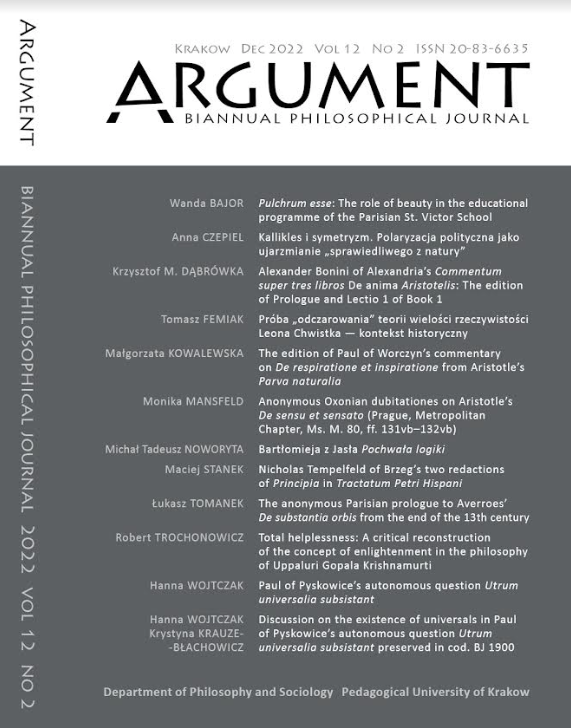The role of beauty in the educational programme of the Parisian St. Victor School
The role of beauty in the educational programme of the Parisian St. Victor School
Author(s): Wanda BajorSubject(s): Philosophy of Middle Ages, 6th to 12th Centuries
Published by: Wydawnictwo Uniwersytetu Komisji Edukacji Narodowej w Krakowie
Keywords: medieval aesthetics; theory of education of the 12th century; humanism of the 12th century; St. Victor School;
Summary/Abstract: Educating a human being is a task that has always stood close to philosophy and sometimes has become philosophy itself, as in the life work of Socrates following the motto with heroic consistency: “Know thyself ” (scire te ipsum). European culture adopted this principle and in- corporated it into its intellectual-spiritual tissue in various guises over the centuries. During the Middle Ages, in the works of Christian thinkers inspired by Neoplatonic philosophy (such as in the views of the scholars of the Saint Victor school in Paris), this tradition was combined with the motif of “being beauty” (pulchrum esse) and enriched by aesthetic thought; beauty with all its richness of form and expression, together with truth and goodness, as Plotinus wanted, marked out the path of man;s “renewal” and showed him the ultimate goal of beatum esse — being happy. The sensitivity and aesthetic sophistication of the Victorine authors of the 12th-century theory of education breathe freshness and an Epicurean joie de vivre, which certainly creates the potential to appeal to contemporary man.
Journal: ARGUMENT: Biannual Philosophical Journal
- Issue Year: XII/2022
- Issue No: 2
- Page Range: 293-309
- Page Count: 18
- Language: English

